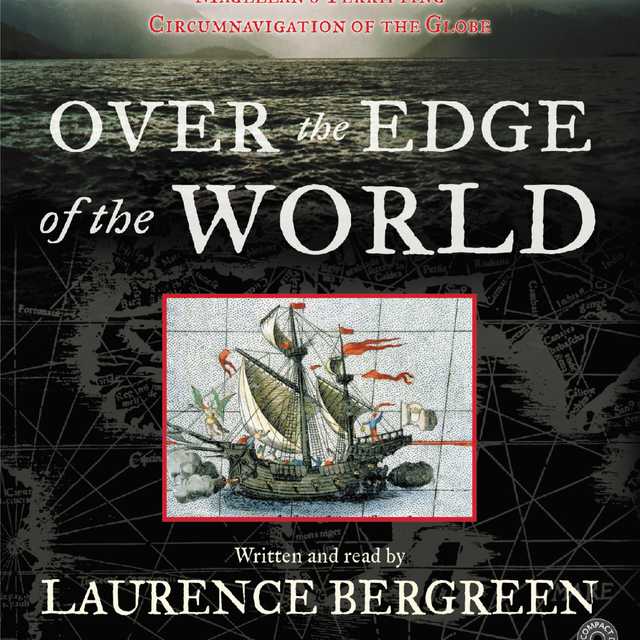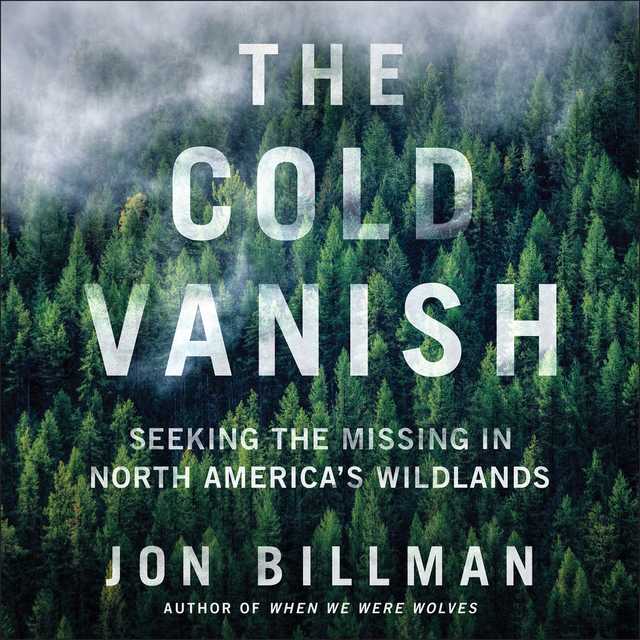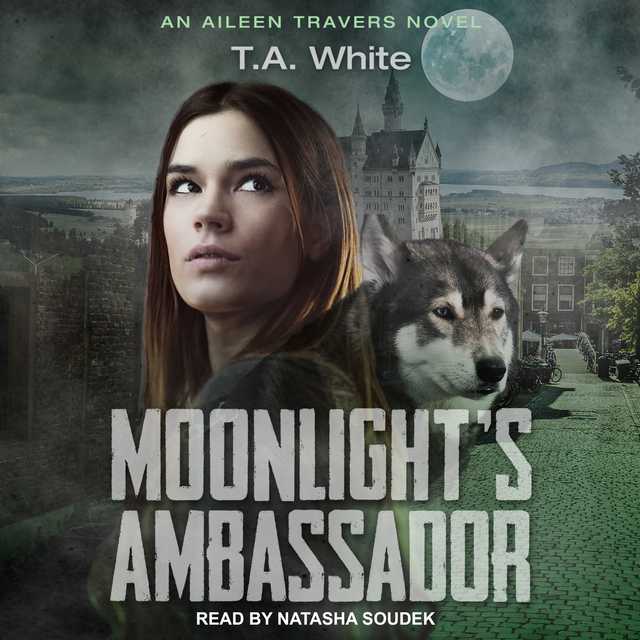Over the Edge of the World Audiobook Summary
A majestic tale of discovery thatchanged many long-held views about the world
In 1519 Magellan and his fleet of five ships set sail from Seville, Spain, to discover a water route to the fabled Spice Islands in Indonesia, where the most sought-after commodities — cloves, pepper, and nutmeg — flourished. Three years later, a handful of survivors returned with an abundance of spices from their intended destination, but with just one ship carrying eighteen emaciated men. During their remarkable voyage around the world the crew endured starvation, disease, mutiny, and torture. Many men died, including Magellan, who was violently killed in a fierce battle.
This is the first full account in nearly half a century of this voyage into history: a tour of the world emerging from the Middle Ages into the Renaissance; a startling anthropological account of tribes, languages, and customs unknown to Europeans; and a chronicle of a desperate grab for commercial and political power.
Other Top Audiobooks
Over the Edge of the World Audiobook Narrator
Laurence Bergreen is the narrator of Over the Edge of the World audiobook that was written by Laurence Bergreen
LAURENCE BERGREEN is the bestselling author of Over the Edge of the World: Magellan’s Terrifying Circumnavigation of the Globe. His other books include Columbus: The Four Voyages, 1492-1504; Marco Polo: From Venice to Xanadu; and Voyage to Mars: NASA’s Search for Life Beyond Earth. A graduate of Harvard, Bergreen lives in Manhattan.
About the Author(s) of Over the Edge of the World
Laurence Bergreen is the author of Over the Edge of the World
More From the Same
- Author : Laurence Bergreen
- Marco Polo
- Columbus
- In Search of a Kingdom
- Marco Polo
- Publisher : HarperAudio
- Abraham
- American Gods [TV Tie-In]
- Dead Ringer
- House of Sand and Fog
- Prey
Over the Edge of the World Full Details
| Narrator | Laurence Bergreen |
| Length | 6 hours 13 minutes |
| Author | Laurence Bergreen |
| Category | |
| Publisher | HarperAudio |
| Release date | January 27, 2004 |
| ISBN | 9780060747787 |
Subjects
The publisher of the Over the Edge of the World is HarperAudio. includes the following subjects: The BISAC Subject Code is Adventure, Special Interest, Travel
Additional info
The publisher of the Over the Edge of the World is HarperAudio. The imprint is HarperAudio. It is supplied by HarperAudio. The ISBN-13 is 9780060747787.
Global Availability
This book is only available in the United States.
Goodreads Reviews
Roy
December 02, 2022
I am a sucker for books like this—stories of survival and exploration—and this one must be among the best. It has everything: wild orgies, bloody battles, mutinies, shipwrecks, torture, disease, treasure—and all of this excitement is woven into a historically significant tale. Indeed, aside from being just a darn good story, Magellan’s voyage provides an insightful window into its time: the state of navigation, of European politics, and of global trade, as well as a snapshot of early European encounters with other cultures (it did not go well). Magellan was arguably a victim of the same misconception that misled Columbus: namely, that the earth was significantly smaller than it really is. Just as Columbus believed that he could make it to Asia simply by heading straight across the Atlantic, so did Magellan believe that the spice islands would be within a few days or, at most, weeks sail beyond South America. Both were mistaken, though for Magellan’s crew the consequences were significantly more dire. In the 99 days at sea between the strait which now bears the explorer’s name, and their first landfall at Guam, nineteen sailors died of scurvy, and many others fell gravely ill. (Of the 270 sailors who set out on the voyage, 173 would die, 55 would desert, 12 would be taken prisoner, and only 30 would successfully complete the circumnavigation.)In retrospect, it is difficult to believe that Europeans could remain so ignorant for so long about the causes of the disease (vitamin C deficiency). Somehow, it did not even cross the sailors’ minds that their diet of biscuits and dried meat could be the cause of their ill health. Even seemingly obviously sources of evidence—such as their quick recovery upon eating fresh fruit, or the seeming immunity from the disease of all those (like Magellan) who were eating preserved quince—did not provoke any sort of epiphany. Instead, the sailors vaguely chalked up the disease to “bad air.” This is an illustrative moment in the history of science, for it shows how background assumptions and beliefs shape the sorts of things we are inclined to view as pertinent evidence. Indeed, many aspects of this voyage strike the modern reader as absurd. For one, the expedition’s main objective was the acquisition of spices—namely, cloves, nutmeg, and cinnamon. Considering that virtually anyone can now obtain each of these spices in a supermarket for a pittance, it beggars belief that so many sailors would risk their lives for such a purpose. At the time, these “exotic” spices were only grown in a few islands in the Pacific Ocean, and were thus rarer and more valuable than gold. Nowadays, in the age of factory farming, this is obviously not the case—a vivid lesson in supply and demand. What used to be the quintessential marker of extreme wealth are now the standard components of a pumpkin spice latte. Another absurdity is that Magellan never intended to circumnavigate the globe. Thinking that the spice islands (the Moluccas) were not very far from South America, his plan was to return the way he came. Instead, he proved that his new route to Asia was entirely impractical, with virtually no commercial prospects whatsoever. The Pacific Ocean (which he named) proved to be both far too big and not at all “pacific.” Ironically, the main accomplishment of the voyage was intellectual—proving, for example, that the earth was far larger than previously thought—which had nothing to do with its original purpose. Certainly, Magellan himself was the furthest thing from a scientist. If I have one criticism of the book, it is that Bergreen is far too laudatory of Magellan, using words like “heroic” to describe him and his men. The man was undoubtedly impressive: brave to the point of foolhardiness, determined to the point of stubbornness, and a highly skilled navigator. However, he was hardly an exemplary leader. Brutal, cruel, highhanded, he did not inspire any loyalty among his armada. He was almost the victim of a popular mutiny (and, in any case, one ship did sneak back to Spain), and he was possibly abandoned by the bulk of his men during the battle that claimed his life. One can clearly see the shape of European colonization to come in his attempts at mass conversion and his willingness to kill and enslave those he comes across. It is yet another irony that the man most famous for circumnavigating the globe only got about halfway before dying in an ill-advised and unnecessary battle. Interestingly, though in Spain Juan Sebastián Elcano—the captain who led the survivors back to Spain after Magellan’s death—is almost as famous as Magellan himself, the Basque mariner does not feature prominently in this book. Elcano, for his part, is certainly a less colorful character than the Portuguese commander, though he must have been a skilled leader to have successfully completed the voyage. (He later died of scurvy on another expedition.) In celebration of the 500th anniversary of the voyage (completed on September 6, 1522), there was even a cantata written in Elcano’s honor and performed at the National Spanish Auditorium. Unfortunately, there were no more tickets available, and I missed it. Yet if this strange and terrible voyage had a true hero, I would argue it was neither Magellan nor Elcano, but the Venetian nobleman, Antonio Pigafetta. A gentleman scholar, he kept a diary of the voyage that has proven to be a trove of information. He was endlessly curious, and made genuine attempts to understand the language and culture of some of the places they visited. It is largely thanks to him that we have such a vivid account of the voyage. And I think a good story is worth all the tea in China—or all the cloves in the Moluccas.
Judith
May 31, 2022
There is no question that Ferdinand Magellan’s circumnavigation of the globe from 1519-1522 was a feat of unimaginable bravery and skill. The journal kept by Antonio Pigafetta on Magellan’s Trinidad and later the Victoria is a historical treasure that documents those Europeans’ first encounters with Pacific Islanders. It records Magellan’s arrogance and disrespect of the Natives’ customs and societies, and his conquering mentality which kept him from learning from his mistakes. It also is a wonderful archive of those cultures and European encounters with cannibalism, sex, food, nautical prowess, and language. High adventure in this easy to read but well researched account.
Alice
November 12, 2020
Captivating and educational. A surprisingly fun read.
Brian
February 24, 2008
A great adventure by the daring men who first circumnavigated the globe. Interesting lessons that some parties ought to have paid attention to. For example, torture was commonly used for discipline on board ships in the early 16th century--one of the techniques used was adopted from the Spanish Inquisition--it involved pouring water into a man's nose and mouth to make him think he's drowning--sound familiar?I had long known Magellan didn't complete the voyage--he was killed in the Phillipine Islands, but I didn't know the circumstances. Essentially, he took his eye off the ball. The mission of his voyage was to reach the Spice Islands and return laden with cloves. Before finding them, he got sidetracked in trying to convert Phillipine Islanders to Christianity and involving his armada in political intrigue between the cheiftains of neighboring islands, the nuances of whose culture he clearly did not understand. On behalf of one chief he launched an invasion of another island, eschewing the use of the first chief's troops in favor of his own small force with its superior weapons--armor, crossbows, and crude guns. Upon reaching the target island he found himself greatly outnumbered, and in ingnominious defeat was literally hacked to death in the surf. This sounded just too much like a more recent ill-conceived adventure by someone who veered from the proper target.
Rex
March 10, 2015
Portuguese Navigator, first to sail around the world to establish a westbound route to the spice-rich Moluccas. That’s the schoolbook snap-shot of Magellan. Maybe you also know he didn’t actually make it. Killed in the Philippines. But do you know he had been a soldier who fought in Morroco, India, and the Far East, was many times wounded, and walked with a limp as a result? That he had actually gone to the Moluccas as a member of a Portuguese expedition sailing east? That he tried for years and years to get an exploration fleet funded to sail to the Spice Islands by sailing west? Or that he didn’t sail for Portugal, but for Spain? How about that once his expedition was at sea in September of 1519, he faced almost constant mutiny from his largely Spanish officers, Castilians to boot?Here, the Captain General of the five-ship Armada de Molucca emerges as both a subtle, keenly intelligent, and utterly ruthless strategist and tactician. The mutinous officers took over three of his ships while the fleet was wintering in 1520 in Port Saint Julian on the east coast of South America. Magellan brilliantly retook them one by one. He had the mutineers tortured and two of their bodies drawn and quartered and displayed for the crews to see for the remainder of the time in port. The lesson was unmistakable: the only thing worse than the misery of obeying Magellan, and freezing or sailing into storms or even over the edge of the world (as some crew members still believed possible, despite a round earth being accepted among navigators), was disobeying him.He succeeded in becoming the first to sail from the Atlantic to the Pacific and the first European to cross the Pacific. Landing on several Philippine islands, Magellan accepted warm welcomes but demonstrated the utter folly of opposing him by showing off the explosive force of the fleet’s guns and his soldiers’ immunity to arrows and swords when wearing suits of armor. But on Mactan Island, in April 1521, he was either too over-confident or suffered lapses in his tactics, and the author takes you right inside the battle scene.Then the book shifts back to Seville where a mutinous ship of the fleet returns and describes Magellan’s actions in the worst possible terms. Meanwhile, the remaining two ships strive to complete the expedition to the Spice Islands. Although they do, only the Victoria with just eighteen survivors returns to Seville in September of 1522. Even though Victoria brought back the true story in the diary of one the officers, the mutineers’ version dominated Magellan’s reputation for many years. The degree of Magellan’s accomplishment perhaps appears clearest in the simple fact that, despite numerous attempts, it was not duplicated until eighty years later by Sir Francis Drake.Really well paced. Richly detailed. Definitely holds your interest from start to finish.
Jim
December 24, 2014
The circumnavigation of the globe by the expedition of Ferdinand Magellan was an amazing odyssey, an incredible story sometimes reading like fiction. Of course, as most may know,if they know anything about Magellan, Magellan himself did not make it around the world. He was killed in the Philippines after the long crossing of the Pacific. Only one ship out of his five made it back to Spain after the 6000 mile ocean voyage, a crew of only 18 left of the 260 men who had set sail three years before. A remarkable story in which Bergreen provides a wealth of information about the world of the Age of Exploration in the 16th Century, still a very brutal and barbaric time but a time when humanity was first learning it lived in one interconnected world..
Nancy
April 26, 2008
Synopsis: In 1519 Spain and Portugal dominated the seas, and spice, which the author states was the oil of the time, enveloped both countries in an intense rivalry for control of the spice trade. Why couldn't both countries share the wealth? Well, after Columbus had reported his New World discoveries back in 1493 to the Pope, both countries got into it over territory. A bit later the Pope divided the world into two parts, half belonging to Spain and half belonging to Portugal. I had to go and look this up because it is somewhat confusing & I studied East Asian history, not medieval Spanish history. Anyway, the Treaty of Tordesillas was born, and this line of demarcation meant that within the Portuguese zone, the Portuguese could claim lands newly discovered & the same for Spain within theirs. However, the spice trade was incredibly lucrative, according to the author, bringing more money than gold ever could. Thus the equivalent of the arms race was born, with Spain wanting control of lands yielding spices and the Portuguese in control of maps with routes leading to the sources of spice kept under lock and key, highly guarded state secrets. Portuguese Ferdinand Magellan wanted to lead an expedition for his king to the spice Islands and a new way of getting there. However, politically, Magellan was on the wrong side of the fence; so every time he asked the king turned him down. Finally out of exasperation, he begged the king to let him seek his fortune elsewhere, the king relented and Magellan went to Spain to offer his services. Not knowing what to make of this, those in charge in Spain listened, ruminated, and allowed Magellan his expedition, yet with some controls. For example, one of the "nephews" (a euphemism for illegitimate sons of high-ranking bishops, popes, etc) of a bishop with ties to ther oyal house was sent on the mission, because even though Magellan had turned over Portuguese charts, etc, and declared his loyalty to Spain, the Spanish could never be certain of him. So...to make a long story short, eventually Magellan and his little fleet began their adventure, not only to find the spice islands & claim them for Spain, but to try to discover a water route of which the Portuguese had no knowledge. The result of his voyage was tragic for everyone but Spain, in the long run. You've all heard of the Straits of Magellan, so the outcome is no big surprise...but the story of the fleet getting to that point and then to the death of Magellan is the meat of this book. In fact, the book to the point of Magellan's death is perfect. I was so into the story that another long night of reading ensued until I realized at 3 am that I had to be up at 6:30 and probably needed rest. Not only did the author use a great source in the voice of the voyage's chronicler, Antonio Pigafetta, to give details, but he also supplied references to works that would have been familiar at the time to sailors, including fantastic stories of Pliny and Marco Polo of sea monsters & cyclopean-type natives, etc etc. I have to go find those now & read them for myself. After seeking out and reading reviews of this book, I noticed that many current readers thought that Bergreen failed to provide answers to certain details Pigafetta had mentioned, such as "giants" among the Patagonian natives. Well, you can't have everything & that certainly didn't spoil the reading for me, although I did find myself wondering. What wasn't explained was certainly more than made up for in the author's story of the voyage up to Magellan's death. It seems to me, though, that after that point, the book lapsed. Of course, Bergreen has to get the survivors of the skirmishes back to Spain and tell what happened, but IMHO, the ardor & depth with which the author told the story up to that time just vanished. That doesn't mean it wasn't good, by any stretch. I would definitely recommend this book to anyone who is interested in the subject matter. The details of the problems caused by the need to convert the poor natives along the way to Catholicism are great; without armchair quarterbacking from the view of time & knowledge you can just see what this led to in later voyages and with what zeal the missionaries were going to screw up the rest of the the islanders/natives not yet discovered.
Leftbanker
May 30, 2020
This is the best account of life aboard a ship in the Age of Sail that I’ve come across, and I’ve read dozens and dozens of books on the subject, including many of the Patrick O’Brian novels. His descriptions of the perils inherent in a life at sea were so convincing that I actually went out and sto
Joan
December 27, 2022
Excelente obra sobre la primera vuelta al mundo. La labor de documentación de Bergreen es extraordinaria, pues no solo utiliza el relato de Antonio Pigafetta —importantísimo e imprescindible testimonio aunque algo sesgado por el marcado posicionamiento del italiano en favor de Magallanes—, sino que utiliza otras fuentes también esenciales para componer el relato de esta gran gesta en aras de ser lo más fiel posible a los hechos reales: testimonios de otros marineros de la flota, innumerables documentos consultados, etc. Tal vez por la dificultad y lo que significó podamos hablar como mínimo de esta travesía como la más importante en la historia del ser humano, me atrevo a decir que por encima de la llegada del hombre a la luna. Y el relato, por supuesto, es tan increíble como apasionante, de lectura necesaria para todo aquel que esté interesado en el tema y quiera conocer de forma pormenorizada las aventuras vividas por la flota de las molucas en esta gesta que hay que calificar de verdadera proeza realizada por unos hombres que se jugaron la vida —perdiéndola en la mayoría de los casos— por una causa imposible.”Habían visto mucho, y aunque no habían logrado entender buena parte de lo que habían vivido, habían dejado textos sobre su experiencia para que otros los estudiaran, ampliando así el conocimiento que los europeos tenían del mundo. Habían rodeado todo el globo para demostrar que el mundo era un lugar más grande, y no más pequeño, de lo que se imaginaba. Se añadieron más de once mil kilómetros a la circunferencia del orbe, además de una inmensa masa de agua: el océano Pacífico. Habían aprendido, además, que más allá de Europa existían personas en sorprendente número y variedad, tan altas como los gigantes de la Patagonia o tan bajas como los pigmeos de las Filipinas, tan generosas como los cortesanos de Brunei y tan violentas como los habitantes de Mactán. Quedaban desterrados fenómenos como las sirenas, el agua hirviendo en el Ecuador o islas magnéticas capaces de arrancar los clavos de los maderos de los barcos que navegaban cerca de ellas. Estos descubrimientos habían costado más de doscientas vidas y tremendas penalidades a los exploradores. Ningún otro viaje había sido tan largo y tan complicado; ningún otro viaje durante la Era de los Descubrimientos lo igualaría jamás en ambición y osadía.La expedición había terminado, pero sus efectos sobre España y en la historia del mundo apenas acababan de comenzar.”
Last Ranger
March 11, 2020
The Days of High Adventure: Magellan had an idea---sail west from Portugal, somehow get past South America (through a hypothetical straight somewhere south of Brazil), cross the largest ocean on Earth and find the Spice Islands. No big deal. All he had to do was convince the king of Portugal to fund the expedition. When Portugal turned him down he tried Spain and the rest is history. Laurence Bergreen's incredible book takes you on this voyage into the unknown. Filled with danger and intrigue Magellan's journey would test him and his men to the limit. No one in the mid 1500's knew if the straight really existed or had any idea how big that ocean beyond South America was (they underestimated it by thousands of miles). On his way Magellan would be threatened by storms at sea, mutiny, scurvy and a host of other perils all leading him to his final destiny. Using crew diaries and the journal of Magellan's personal chronicler, the author is able to fill in the details of life in the Age of Discovery and take you on numerous side trips to explore the other societies that filled Magellan's world. And what a Game of Thrones that world was. So, if you want to put a little adventure in to your reading, give this book a try.Last Ranger
Most Popular Audiobooks
Frequently asked questions
Listening to audiobooks not only easy, it is also very convenient. You can listen to audiobooks on almost every device. From your laptop to your smart phone or even a smart speaker like Apple HomePod or even Alexa. Here’s how you can get started listening to audiobooks.
- 1. Download your favorite audiobook app such as Speechify.
- 2. Sign up for an account.
- 3. Browse the library for the best audiobooks and select the first one for free
- 4. Download the audiobook file to your device
- 5. Open the Speechify audiobook app and select the audiobook you want to listen to.
- 6. Adjust the playback speed and other settings to your preference.
- 7. Press play and enjoy!
While you can listen to the bestsellers on almost any device, and preferences may vary, generally smart phones are offer the most convenience factor. You could be working out, grocery shopping, or even watching your dog in the dog park on a Saturday morning.
However, most audiobook apps work across multiple devices so you can pick up that riveting new Stephen King book you started at the dog park, back on your laptop when you get back home.
Speechify is one of the best apps for audiobooks. The pricing structure is the most competitive in the market and the app is easy to use. It features the best sellers and award winning authors. Listen to your favorite books or discover new ones and listen to real voice actors read to you. Getting started is easy, the first book is free.
Research showcasing the brain health benefits of reading on a regular basis is wide-ranging and undeniable. However, research comparing the benefits of reading vs listening is much more sparse. According to professor of psychology and author Dr. Kristen Willeumier, though, there is good reason to believe that the reading experience provided by audiobooks offers many of the same brain benefits as reading a physical book.
Audiobooks are recordings of books that are read aloud by a professional voice actor. The recordings are typically available for purchase and download in digital formats such as MP3, WMA, or AAC. They can also be streamed from online services like Speechify, Audible, AppleBooks, or Spotify.
You simply download the app onto your smart phone, create your account, and in Speechify, you can choose your first book, from our vast library of best-sellers and classics, to read for free.
Audiobooks, like real books can add up over time. Here’s where you can listen to audiobooks for free. Speechify let’s you read your first best seller for free. Apart from that, we have a vast selection of free audiobooks that you can enjoy. Get the same rich experience no matter if the book was free or not.
It depends. Yes, there are free audiobooks and paid audiobooks. Speechify offers a blend of both!
It varies. The easiest way depends on a few things. The app and service you use, which device, and platform. Speechify is the easiest way to listen to audiobooks. Downloading the app is quick. It is not a large app and does not eat up space on your iPhone or Android device.
Listening to audiobooks on your smart phone, with Speechify, is the easiest way to listen to audiobooks.






























